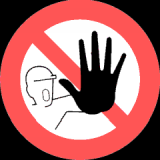
I have bad news. It’s in the title but it bears repeating; Your greatest strength may be your fiercest foible. In fact, it’s almost surely one of your foibles, if you haven’t kept it in check, and so few of us manage that feat.
Your foibles are the little quirks that make you who you are. While your weaknesses are usually glaring enough to be not too much of a surprise, your foibles sneak in through your defences and are what often need attending to. They might give you character, but it’s always good to ask questions of your self and make sure these traits aren’t dragging you down. Knowing how they can do that, how your strengths can be negative influences, is the first step to asking yourself the hard questions.
How your strengths can defeat you
You can rely too heavily on your strengths
A strength or talent of any kind is a wonderful thing. It gives you skills and abilities that set you apart from the rest. A character strength can make you special, and capable of more than most around you, which demands that strengths be honed and encouraged.
The stumbling block of honing a strength is the same as the practice of favouring one arm, which most of us do. You’re right-handed or left-handed, most likely, and your other arm remains under developed and untalented in the simplest of motor skills. In my case, I could say one of my strengths is figuring things out, adapting, and doing everything myself, given a task. Perhaps this makes me blind to all the simpler ways of getting things done.
We can come to rely completely on our strengths, and like all things, our strengths need not always be the best or even the most appropriate solution. This makes it crucial to make sure we are not always doing things using the one way we know best. Don’t ignore the other way. What if you were not good at whatever you always rely on to get you through tight spots? What would you do as an alternative? Sometimes, make sure you do that instead.
Others can take your strengths for granted
It’s not just us who can rely on our strengths too much, it’s also others who are aware of these strengths. When someone else begins to take your strengths for granted, it can get to be a very dysfunctional equation.
In school, many of us were told by a teacher to not ‘act too smart’, a weak, derogatory dig, but this is one place where sometimes clueless authority figures might have unconsciously stumbled upon wisdom without realising it. It is possible to be too smart at something, because those smarts can become a crutch for other people.
Shifting slightly to the realm of fictional teachers of martial arts in action films, we’ve often heard the wisdom of using someone’s strength against them. Unfortunately that’s not just a thing in kung fu. Subconsciously, we often use the strengths of people against them, mostly because it’s convenient and saves effort.
Switching back to my less fictional schooling, one of my strengths from quite early one was being good at drawing. Not as artistically exceptional as some others, but with a good level of technical skill in draughtsmanship. Inevitably, I almost did become the de-facto chart-guy, that kid who’s always assigned the mostly thankless task of preparing semi-educational, mostly decorative wall charts for the class, so that it looks like “the class” is doing things. This was also the result of being too adjusting at times.
Talents and personal traits can often be overused by others, because you’re good at it, or mostly just because you will take it. It’s important to watch out for that. Don’t let your strengths become practical liabilities. Make sure others are not relying too heavily on your skills or traits to make their lives easier at your expense. Strengths must be honed but not exploited. If you must be exploited, make sure it’s done by you, and for your own agenda.
Your strengths can wither in disrepair
I’ve mentioned twice now that your strengths must be honed and this is an aspect of your personal strengths that you will rarely hear mentioned, yet it is an effect that can be the most insidious. Not only can you rely too much on your strengths to get by in life, but you can also rely too much on the fact that you have certain strengths to begin with.
Having a strength is not to be taken for fact on hearsay, but more so, being good or the best at something is not a permanent state. Talents and virtues need honing and new learning and development. You must practice your strengths for them to remain strengths, you must sharpen your talents and learn and grow in your skills for them to remain relevant and remarkable. Strengths can lead to over-confidence, which can be a strong adversary.
What you don’t want is for your strengths to fall into over-confident disrepair. Strengths not tended to, maintained and strengthened, are liabilities, for the strengths wither while leaving behind the false belief in being capable. To not know, or not be capable is not a horrible thing, but to not know that you don’t know or aren’t capable is a ticking time-bomb of a personality flaw.
Keep your strengths exercised, keep them strong, and keep them nimble. Don’t let anyone take advantage of your strengths in excess, not even yourself, but just as much, make sure your strengths remain advantages by keeping them fresh.
How your foibles can be your friends
Having given you all these cautionary tales about your strengths, you should also know that some of your foibles and weaknesses can be strengths in practice, if well channelled. What we can’t do, we often try to make up for with effort and invention, and that can be a remarkable engine of effects.
Any lack of talents or personal virtues can often force us to improvise. If you’re an impatient person, it is likely, for example, that you will be the one to formulate quicker solutions. If you’re not good at working with groups of people, it’s likely you will find a way to do it alone, or with the least amount of people.
Your foibles will always be foibles until actually dealt with, but while you have them, do try to see how they can help you do things better.
We all have our virtues and our flaws, that much is given. Besides the self-improvement that we must attempt as thinking beings, it is also prudent for us to make the best of all our traits, positive and negative. Make the best of what you are, and try to be better. Let your strengths be gifts and never liabilities. Let your weaknesses be goads towards betterment, finding better ways to live, and act, and be human.
Samir
Liked this article? Please share it: ![]()
![]()
![]()
![]()
![]()
![]()



I can relate to your post, Samir. For many years I worked in a profession that I was good at (therapist) without realizing it wasn’t good for me. When you keep being told how good you are at something, it is easy to put on the blinders and not see the flip side: what it might be costing you. Getting to know ourselves on a deep level and accepting all of ourselves (strengths and challenges) really does lead to finding a better way to live. Thanks for the post.
Diane, thank you for sharing that. Seeing the things that affect us and pull us down is a challenge few of us manage to crack completely, and it’s good to hear from insightful people who have. Glad you liked the post.
I’m still trying to digest every thing I read in here.. for your words are too deep, thankfully there is Google to help me understand. But you’re right, we must learn to strengthen our strengths for our own agenda, and not for the benefit of others. I think my talent in drawing (because I too have little talent in art) was somehow abused by my classmates and teachers who often ask me to do this and that for them. I remember I turned down one request, and their impression on me changed instantly. People.
This is an awesome read. Thanks! 🙂
Rachel, thank you for your comment and glad you agree. I think all us kids who could draw well were turned into unplanned artisans, especially in times when printers and Google Image Search were not so ubiquitous. 🙂
You’re welcome and hope you drop by again.